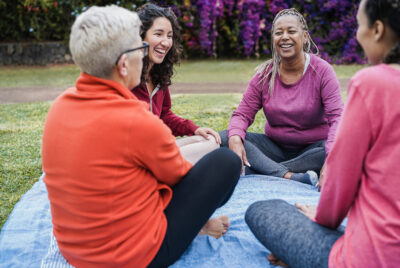
Human nature is a very complex structure of stimulus, that uniquely is driven by multiple influences in each environment. We function with a set of responsibilities that help us position ourselves in each condition. As we keep growing through these circumstances in life, the number of responsibilities increases resulting in our entangled lifestyles. We tend to break down our purposes into daily work and routines to fulfill these responsibilities.
The pressure on us to complete our daily goals, coming from work, families, peers, and ourselves creates tension. We term this tension as stress. The negation of our energy happens because of our fear of the uncertainty about meeting our expectations. This negation of thoughts can be impactful on our health, especially when you are unable to cope with it or you feel that you are failing at making some ends of your life meet. Positive Stress or Eustress can be your best motivator if you know how to use it to your advantage, otherwise, it is the rabbit hole that suffocates and drains you out.
You must know the signs of stress to understand how your body and mind react to stress. Stress incorporates the defense system, known as the fight or flight, which causes your body to release various hormones like cortisol, adrenaline, and so on, while in the state of stress. These hormones lead to a rise in your blood pressure, heavy breathing, contractions in your muscles, and heart rate increase. We are designed to avoid anything that can physically or mentally damage us or harm us. This means that we already know how to deal with stress. However, long exposure to a lot of stress can become exhausting and at a threshold, our mind and body cannot fight it anymore.
It is extremely important for you to not let yourself reach that level and for that to happen, you are supposed to know how much stress you are suffering from on an everyday basis. Tackling the stress daily creates the potential to restore your capabilities to fight back and to not drain yourself.
- There are a few tricks and tips that when followed every day, can ensure you are not under stress at all. You can find the easiest and the most important ones below:
Exercising can help with endurance:
When your body is pushed through a good exercise, it enhances the body to remove all the impurities, improves your blood circulation which makes all the important hormones in you, resulting in a strong immune system. As soon as you are physically strong and capable, parts of your stress are broken down by your own confidence. Healthy exercises like aerobics, weights, yoga, and so on release endorphins in your body which is a hormone that makes you feel better. - Control the factors of stress beforehand:
You are aware of the things you do in a day that demands your involvement and what can consume a lot of your mind. Your actions are your own choices, which means they can be controlled and adjusted by you. Practicing soft skills like time management, organization, and active communication can solve your decision-making problems which automatically reduces the stress about the things you do. - Introspection helps learn stress:
Introspection is a process where to dive into yourself and learn your values, philosophies, and your cores. This can be done by observing yourself while you are doing your daily work. Pay closer attention to your thoughts, your actions, your preferences, your beliefs. The more you learn about yourself, the better you act in moments of stress. - Do not say yes to everything:
We often do not say no to anything that comes our way in our natural schedules and routines. We are usually in the flow of getting through the day and we forget that we have a specific amount of energy that can deplete if not used efficiently. This means that you are supposed to deny the additional things that are not very important. You can judge the priorities based on your already ongoing actions. - Eating habits and choice of food:
A major source of your energy to do anything comes from the food that you consume. If you have a bad eating habit, then it might directly affect your immune system while fighting stress. It is often our hectic schedules and constant activities that burden us with stress and that is exactly when we ignore eating or adjust our eating habits. This causes our body to not get enough time to conserve energy, resulting in an early drain. - Remind yourself of your best qualities:
No one can say what you are good at better than you can. Keep an active practice to consistently remind yourself about your best characteristics. This builds the necessary level of confidence your mind needs to overcome a given situation. Often stress can cause you to become negative about yourself where you can’t understand what good you are. This habit can easily take you to your best place at any time. - Train your mind to relax all the time:
Under stress, it is almost impossible to keep yourself cool, calm, and collected. These qualities are exactly the opposite of the qualities that reflect the hormones released during stress. This means that you need to gain that much control over your mind and body to go against those hormones and successfully find your calm. To do this, you can research relaxation techniques like breathing, muscle relaxing, etc., and try them out. - Avoid consumption of harmful products:
Stress can be tricky, it can lead you to use products like cigarettes, alcohol, and excessive caffeine. Tobacco, nicotine, and caffeine can temporarily distract you from the pressure and help you release your stress, but prolonged use of these products causes more stress than releasing it. Nicotine and alcohol are depressants that make you think more. A portion of these advantages may appear clearly evident looking back, yet they’re frequently ignored. While you may feel pretty strong on your feet presently, there’s no denying how as we age, balance and coordination truly crumble.




